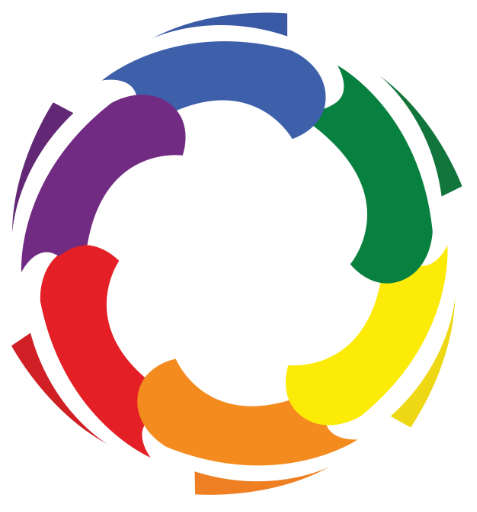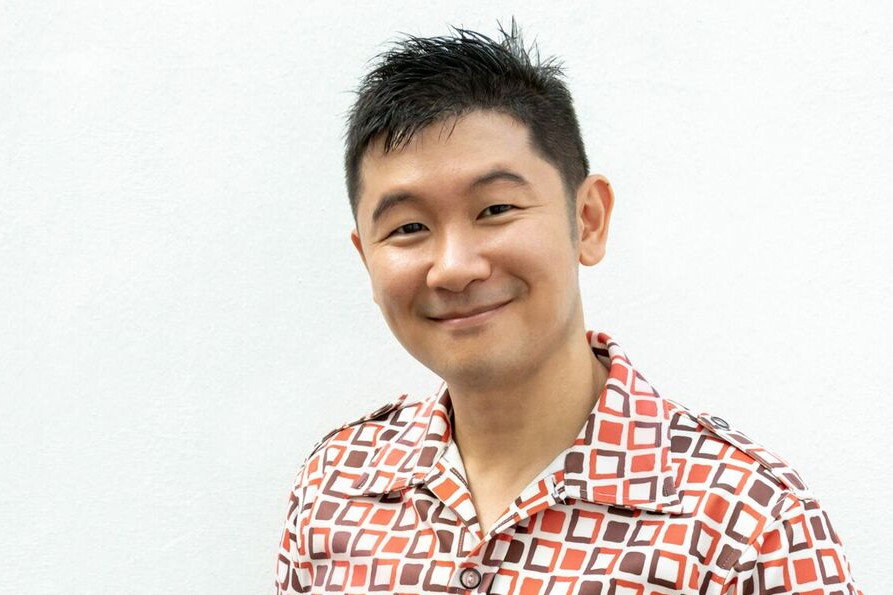
- Details
Interesting Times
Interesting Times
May you live them,
not just survive them. May
you be their agent, their instigation,
the one they bless / they blame when
everything goes to hell & back. May you be
captured in a news still, waving the flag or ripping
it down from its ruthless hoist. May you be larger
than the skin you inhabit. May your romances be epic,
your victories be real, your role in the costume drama
they make of our now win a Golden Horse. May your
utterances be remembered / productively misunderstood.
May you inspire action. May you inspire poetry,
good & mediocre. May your myth inspire terror
in the imperial guard, ten centuries hence.
& may you escape it all when you need to,
find peace in the peacelessness.
Above all, wreak a lovely
havoc. Leave the
history textbooks
stained
with
sweetest
fire.
Ng Yi-Sheng
 Ng Yi-Sheng is a Singaporean writer, cultural researcher and LGBT+ activist. He formerly co-organised IndigNation: Singapore's Pride Season and co-edited GASPP: a Gay Anthology of Singapore Poetry and Prose. His books include SQ21: Singapore Queers in the 21st Century, Last Boy, A Book of Hims and Lion City.
Ng Yi-Sheng is a Singaporean writer, cultural researcher and LGBT+ activist. He formerly co-organised IndigNation: Singapore's Pride Season and co-edited GASPP: a Gay Anthology of Singapore Poetry and Prose. His books include SQ21: Singapore Queers in the 21st Century, Last Boy, A Book of Hims and Lion City.
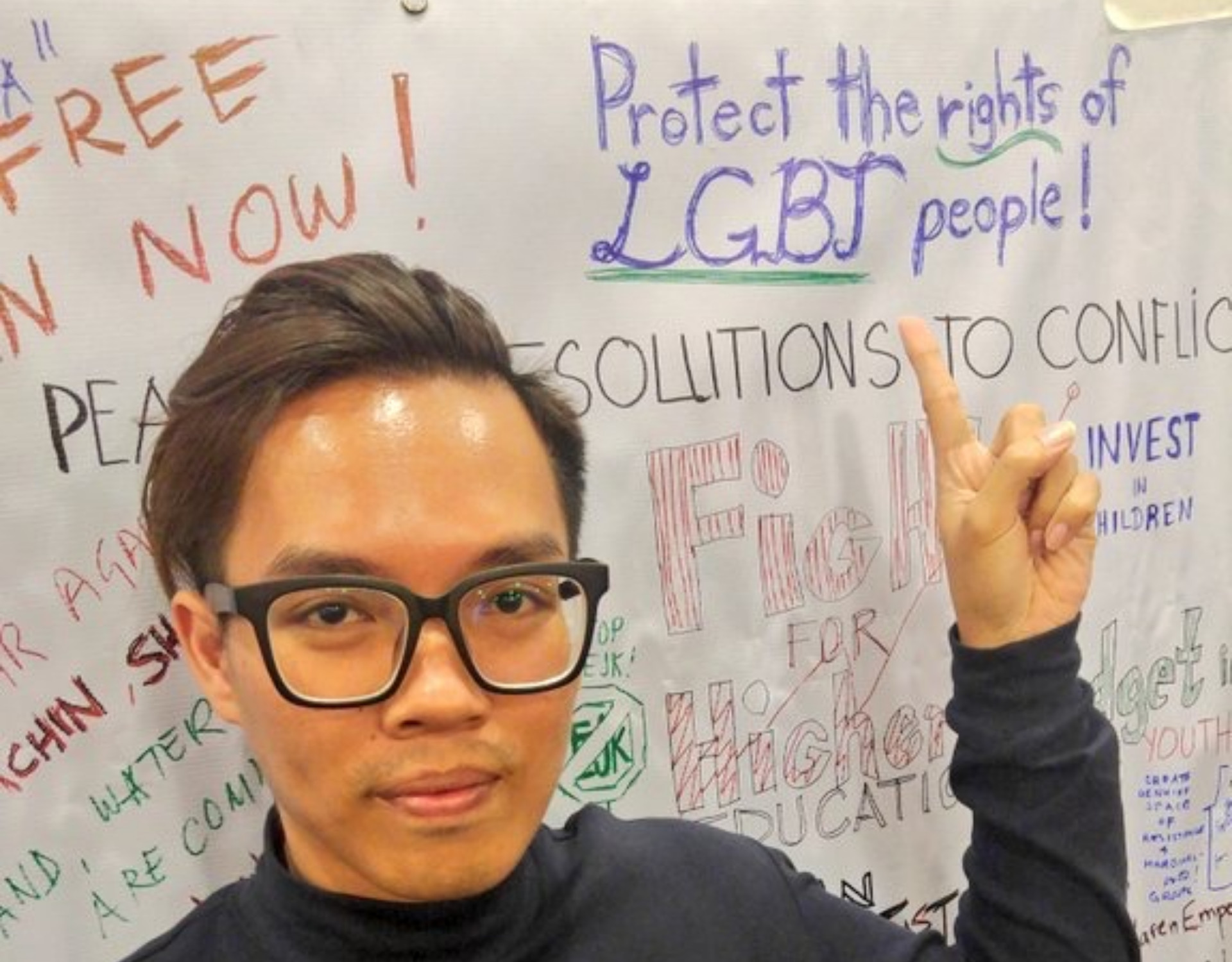
- Details
Point of no return: a daunting future of ASEAN LGBTIQ community living in COVID-19 pandemic
Despite being claimed to bring benefit to the majority of people, the measures adopted by the Association of Southeast Asian Nations (ASEAN) and its member states to curb the infection of COVID-19 - ranging from partial/total lockdown, restriction of movement, contact tracing to surveillance – have exacerbated the pre-existing vulnerabilities of marginalised communities, particularly people with diverse sexual orientation, gender identity and expression, and sex characteristics (SOGIESC), also known by the term Lesbian, Gay, Bisexual, Transgender, Intersex, and Queer (LGBTIQ) in the region.
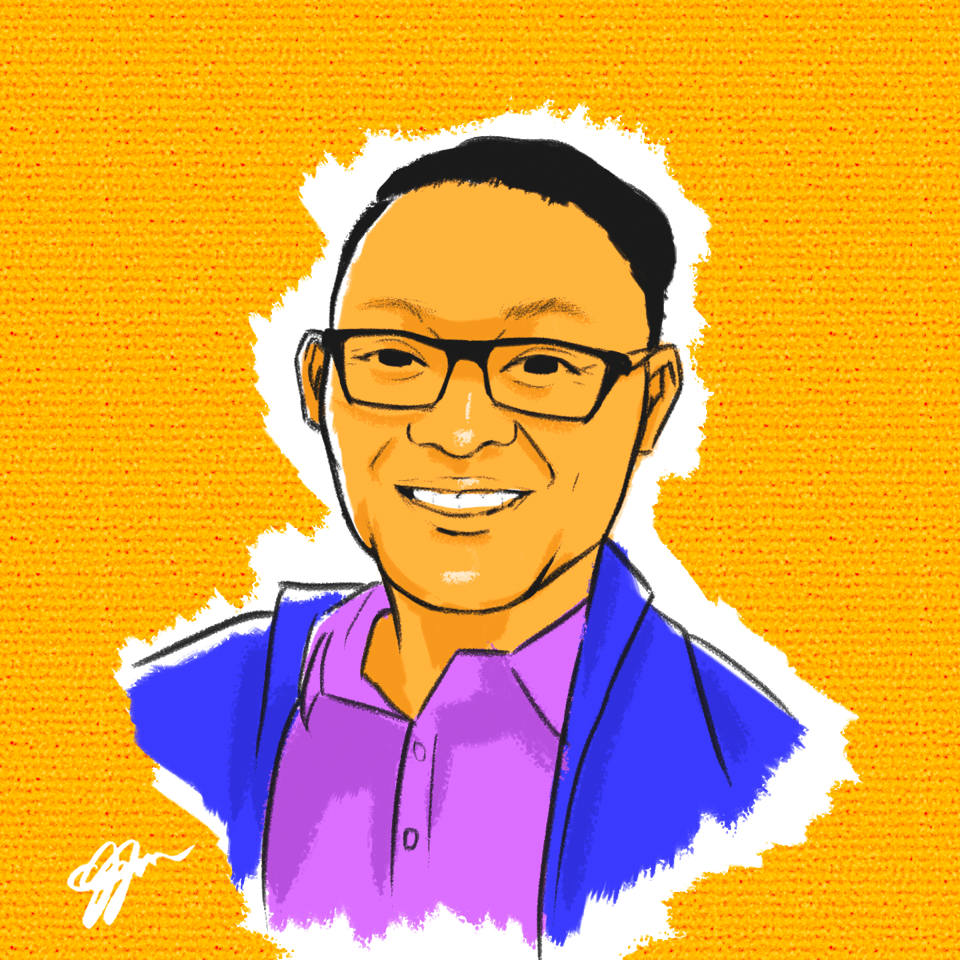
- Details
Impacts of Covid-19 on LGBTIQ organizations in the Southeast Asian Region

The Association of Southeast Asian Nations (ASEAN) has been a complex and challenging political terrain for lesbian, gay, bisexual, transgender, intersex, queer (LGBTIQ) activism. The unholy concoction of conservative religious or traditional discourses and colonial penal laws resulted to criminalization of LGBTIQ persons. Five countries in ASEAN, namely, Brunei Darussalam, Indonesia, Malaysia, Myanmar and Singapore, have domestic laws that criminalize consensual sexual relations, imposing penalties ranging from imprisonment, to public caning, and worse, death. Four countries, namely, Brunei Darussalam, Indonesia, Malaysia and Myanmar, apply domestic laws that restrict expressions of gender diversity, resulting to arrests, harassment and imprisonment of transgender and gender diverse persons. In many development programs, LGBTIQ and gender diverse persons are left-behind, leveraging on scant local support in the fringes of governance and development aid. These are part of the litany of issues many LGBTIQ groups in the region have been confronting for years.
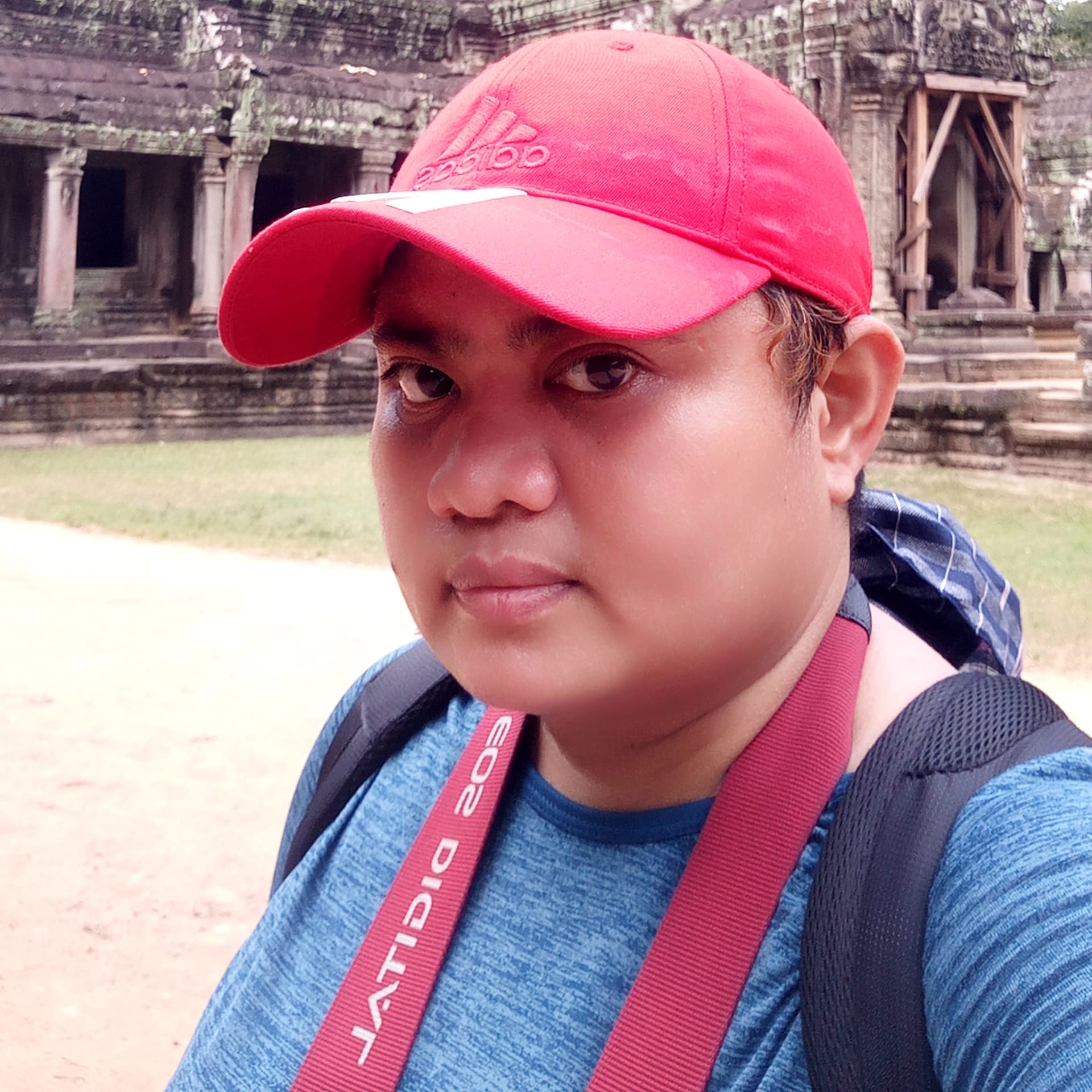
- Details
Reflections about the ASEAN Queer Leadership Week

Out of more than a hundred who applied and subjected to several steps of screening, only 10 from different ASEAN countries passed. All leaders in their own organizations coming from, Cambodia, Indonesia, Malaysia, Myanmar, Singapore, Philippines and Vietnam, coming from the different spectrum of the rainbow.
Who are we as leaders and how we emerged as such came from care. We did not simply jump up the moment we saw injustice.We first cared, sympathized and empathized with those who suffered. We did not volunteer to work for our organizations because we wanted to be either recognized or become heroes; we felt empathy for those who suffered from discrimination and violence, and wanted to give more than our normal existence could. Caring not only about the people that we serve but caring also for those who we work with.
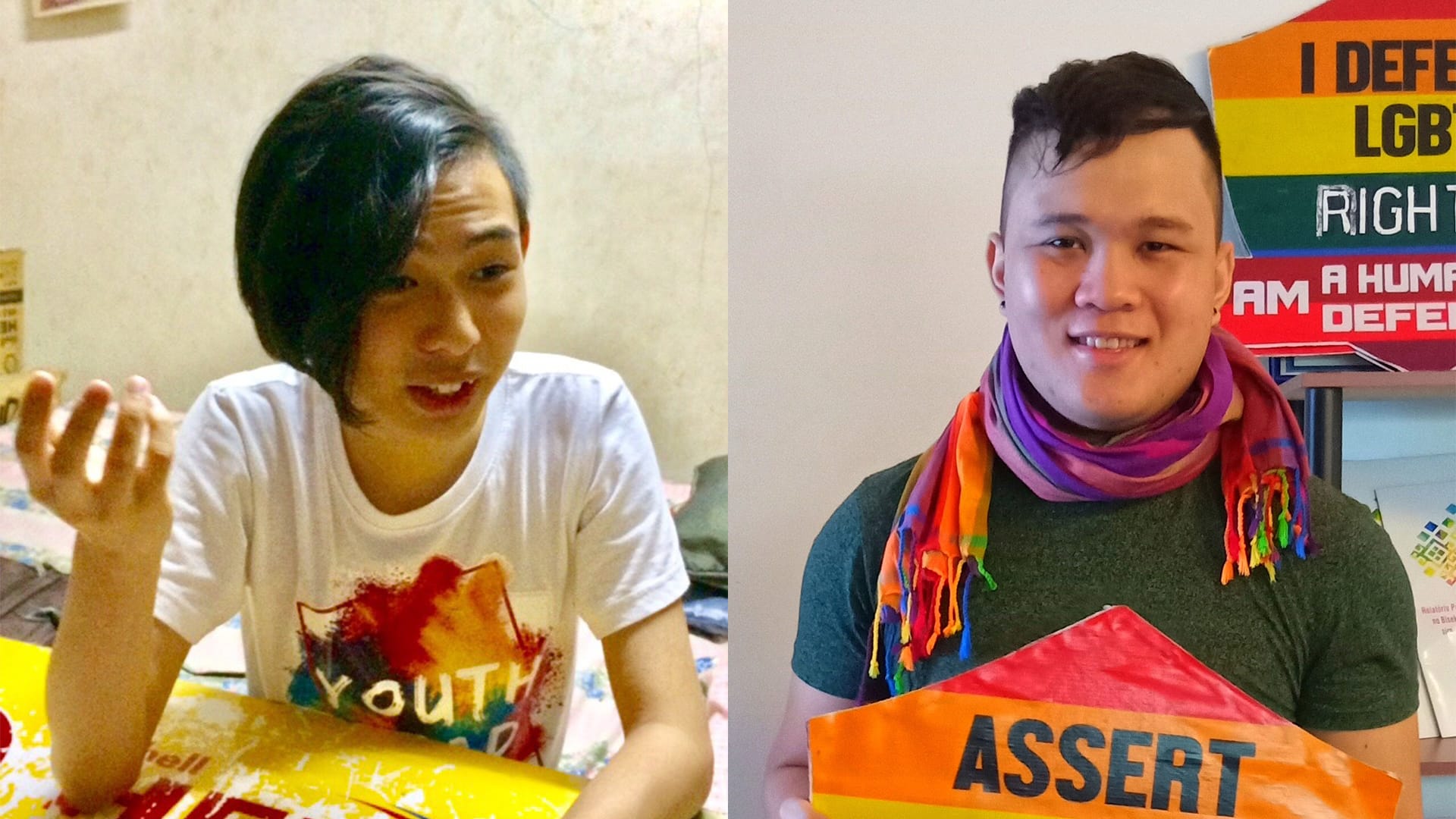
- Details
On the Margins of Politics and Religion: Forbidden Love in Conservative Malaysia

This article will look at the continued crackdown of the Malaysian government on LGBT individuals. It will analyse one of the most recent cases of state-sponsored violence against members of the LGBT community in Malaysia. It will also look into the human rights violations of sexual and gender minorities in Malaysia and similar other places.
Just like a spectacle, two women were publicly caned six times after being found guilty of attempting to have sex by the High Shariah Court in the conservative Malaysian north-eastern state of Terengganu. The two women were also fined 3,300 Malaysian Ringgit or approximately 600 British Pounds. This case was the first time that the two women were accused of having sex as the common reason to be caned in Malaysia is because of adultery or extramarital affairs.
Thilaga Sulathireh, an activist with Malaysian rights group Justice for Sisters, said that, “this case shows a regression for human rights, not only for LGBT people but all persons because corporal punishment affects all people.” (Lamb, 2018)
This case to activist groups sets a dangerous precedent because it would lead to further policing of morality and sexual identities in Malaysian society. Despite human rights groups urging the Malaysian government to drop this case stating that this punishment constitutes tortures which goes against International Human Rights Law. Thirteen states in Malaysia criminalize homosexuality and prohibit “a woman posing as a man”, among those, three states even criminalize the offence (ASEAN SOGIE Caucus, 2017; The Guardian, 2014).
Malaysia is a signatory to the Convention on the Elimination of All Forms of Discrimination against Women (CEDAW) on July 5, 1995. Interestingly Malaysia has yet to give an action on the International Convention on Economic, Social and Cultural Rights (ICESCR). In conjunction to these signatories, Malaysia’s Sustainable Developmental Goals Voluntary National Review 2017 emphasizes on Goals 5, gender equality, that enhancing inclusiveness towards an equitable society and accelerating human capacity development for an advanced nation are the aspiration of the country to empower the right of woman. Yet, this public caning of both women is a clear violation of several of the articles in the convention as well as derail from the national SDG planning. It is a clear violation of articles two and thirteen on the condemnation of discrimination in all forms and on the economic, social, and culture rights.
In terms of civil and political rights, the CEDAW looks into these in articles fifteen and sixteen. Article fifteen states that women, like men, have equality before the law and the courts. While, article sixteen provides equal marriage and family rights to women, this includes freedom to choose a spouse. Arguably, this case was determined by the courts as a violation of Islamic and civil laws on the conduct of homosexual behaviour, however, whether the females in this case were in a consensual relationship or not, this type of punishment is a clear human rights violation.
We also need to bear in mind that the CEDAW does not diminish in effect just because the women in question are homosexual. The CEDAW, in itself, is not discriminatory in nature and seeks to protect the rights of women of all sexual orientations and gender identities. We will look at this human rights violation in the context of torture against women in relation to their specific sexual orientation and identity.
In terms of the Constitution of Malaysia, article one of the Constitution guarantees autonomy of the states of the federation, this includes Terengganu (2). The fundamental liberties of Malaysian citizens are enumerated in article 8 of the Constitution guaranteeing the right to equality before the law. What is problematic however can be seen in section two,
“Except as expressly authorized by this Constitution, there shall be no discrimination against citizens on the ground only of religion, race, descent or place of birth in any law relating to the acquisition, holding or disposition of property or the establishing or carrying on of any trade, business, profession, vocation or employment, (Malaysia: Federal Constitution, 1957)
The constitution of Malaysia does not specifically state equality on the basis of sex and/or gender. Although Malaysia is a signatory of CEDAW, the Constitution does not recognize equality of women and even further on equality regardless of sexual orientation or gender identity.
Now let us look into the legislature and legal system of Malaysia. There are on-going debates on the actual interpretation and implementation of civil law vis-à-vis Islamic law. Those in favor of corporal punishment would contest that compared to Civil Law, Islamic law is neither painful nor harsh and is meant to educate as a form of repentance. However, when we compared Civil law and Shariah law, the punishment of latter seems to be much severe and harsh even to the extent of inhuman. Public canning of the two lesbian serves as the best example of it where the canning itself ought to be conducted in a private setting with respectful manner to the women. While, opposition lawmakers would provide a less violent interpretation to the doctrines of Islam preferring mercy and respect for dignity rather than punishment. Instead of using punishment, mandatory of counselling and participation of conversion camp are usually opposed on gender or sexual minority to “educate and empower” them to go back to the mainstream notion of gender and sex.
Looking at the whole picture, Malaysia’s political and cultural stand do not acknowledge the right of the individual in terms of gender nor sexual identity. It is clear that there are many cross-cutting human rights violations here against the lesbian women, however, let us look specifically into the right to equality before the law and the courts (which would be a political right violation in article fifteen of the CEDAW).
The women here were subject to a punishment that constitutes both inequality in the face of the law and torture. Both of which are clear human rights violations. This is somewhat similar to the recent case, in 2014, two women were arrested in the Malaysian city of Johor Bahru after a sex toy was found in their hotel room, however, they were not caned publicly (Feder, 2014).
The government of Malaysia, in general, have not responded to these violations and have even justified them as necessary to maintain moral standards. Whilst, religious groups have seen spiritual guidance and ‘conversion therapy’ as essential methods of ensuring that moral standards are achieved. This inaction by the government and support of this type of punishment is in itself a human rights violation.
Unfortunately, human right violation on sexuality matters will escalate with the ineffective of federal government in handling such cases given that state government has their own state law and power in handling the matters happening within the state. What make it worst is that, shariah law has it own jurisdiction which the civil law has to respect especially when sexual minorities who is Muslim is involved in such cases in those conservative state. Besides, with the rise of religious radicalization, sexual and gender minorities are constantly being the subject of repentance where more violation of human right will be happened according to the heteronormative, cultural, and religious political game. A proposal to establish a “Shariah Jail” is on its way said by shariah judge in Terengganu to correct the moral deviant behavior.
Judge Kamalruazmi Ismail proposed the establishment of a special detention centre for shariah offenders for the purpose of restoring their faith and broadening their moral horizon, while protecting them from other more serious criminals such as rape or robbery offenders (Bernama, 2018).
What makes this issue unique is that despite obvious human rights violations being committed, little can be done because of religious, traditional and cultural realities in Malaysia. Teetering on these realities that have continued to haunt members of the LGBTIQ community in Malaysia, the political right to equality before the law becomes caught between a conservative Islamic law that seeks to proactively repress homosexual behaviour through violent means and an oppressive states subject to civil laws that also criminalize homosexuality.
The two women who were caned were violated their fundamental political right to equality before the law as their mere expression of their identity and sexuality accorded them a punishment that is similar to torture and an excessive fine that is beyond what is possible humane. Intersectionality of their identities as Muslim women and as lesbians, have brought them in a disadvantaged situation in the legal process. Their access to remedies and justice have been impeded by gender and sexual orientation discrimination.
The specific deprivation of the entitlements of these women is actually not different from the overall experience of oppression of LGBTIQ individuals in Malaysia. In order to remedy this situation and the on going crackdown of LGBTIQ identities, there has to be an extreme institutional change and sensitization of the various policy making and judicial bodies within the Malaysian government. This has not yet taken flight but with the strong civil society movement in Malaysia there is hope.
The human rights violation presented in this paper is rooted in strong religious and moral ideologies that shapes the legal environment of Malaysia. In order to change the current situation of LGBTIQ rights in Malaysia, there had to be reform of existing restrictive laws or the repeal of laws that criminalize homosexual behaviour. This will not, however, happen in a night hence it should be a collaborative effort of various state and non-state agencies, including civil society. Hence, proper documentation of the human right violation on SOGIESC basic and suitable platform should be provided to open up a safe space for the government and the community of concern to manage and discuss the existing legal structure and policy to serve Malaysian the best.
The dangers are all too evident for members of the LGBT community and when we see that their expression of love is forbidden in conservative Malaysia, oppression starts. It becomes more systematic and institutionalized due to religious extremism and political interest, members of the community will continue to find themselves in the margins of politics and religion. AT the end of the day the question remains, until when will their love be illegal?
References:
- ASEAN SOGIE Caucus, 2017(a). Policy Brief on the Convention on the Elimination of All Forms of Discrimination Against Women (CEDAW) and Sexual Orientation, Gender Identity and Expression, and Sex Characteristics (SOGIESC) in Southeast Asia
- Bernama, 2018. Terengganu to study “Shariah Jail”. Retrieved at https://www.freemalaysiatoday.com/category/nation/2018/10/13/terengganu-to-study-shariah-jail/; Retrieved on: 10/10/2018
- Feder, J. Lester, 2014. Malaysian Religious Police Arrest Two Women on Charges of Lesbianism. Buzz Feed. Retrieved at: https://www.buzzfeednews.com/article/lesterfeder/malaysian-religious-police-arrest-two-women-on-charges-of-le ; Retrieved on: 09/10/2018
- Lamb, K., 2018. Women Caned in Malaysia for Attempting to have Lesbian Sex. The Guardian. Retrieved at: https://www.theguardian.com/world/2018/sep/03/women-caned-in-malaysia-for-attempting-to-have-lesbian-sex ; Retrieved on: 08/10/2018
- Malaysia: Federal Constitution [], 31 August 1957, available at: http://www.refworld.org/docid/3ae6b5e40.html [accessed 11 October 2018]
- The Guardian, 2014. Malaysian court overturns law that banned cross-dressing. Retrieved at: https://www.theguardian.com/world/2014/nov/07/transgender-malaysia-court-law-crossdressing-appeal; Retrieved on: 10/10/2018
_____________________________________________________
* Justin and Jeremy are young leaders from the Philippines and Malaysia who are active in SRHR and LGBTIQ Rights advocacies.
Contact details:
Justin -
Jeremy -
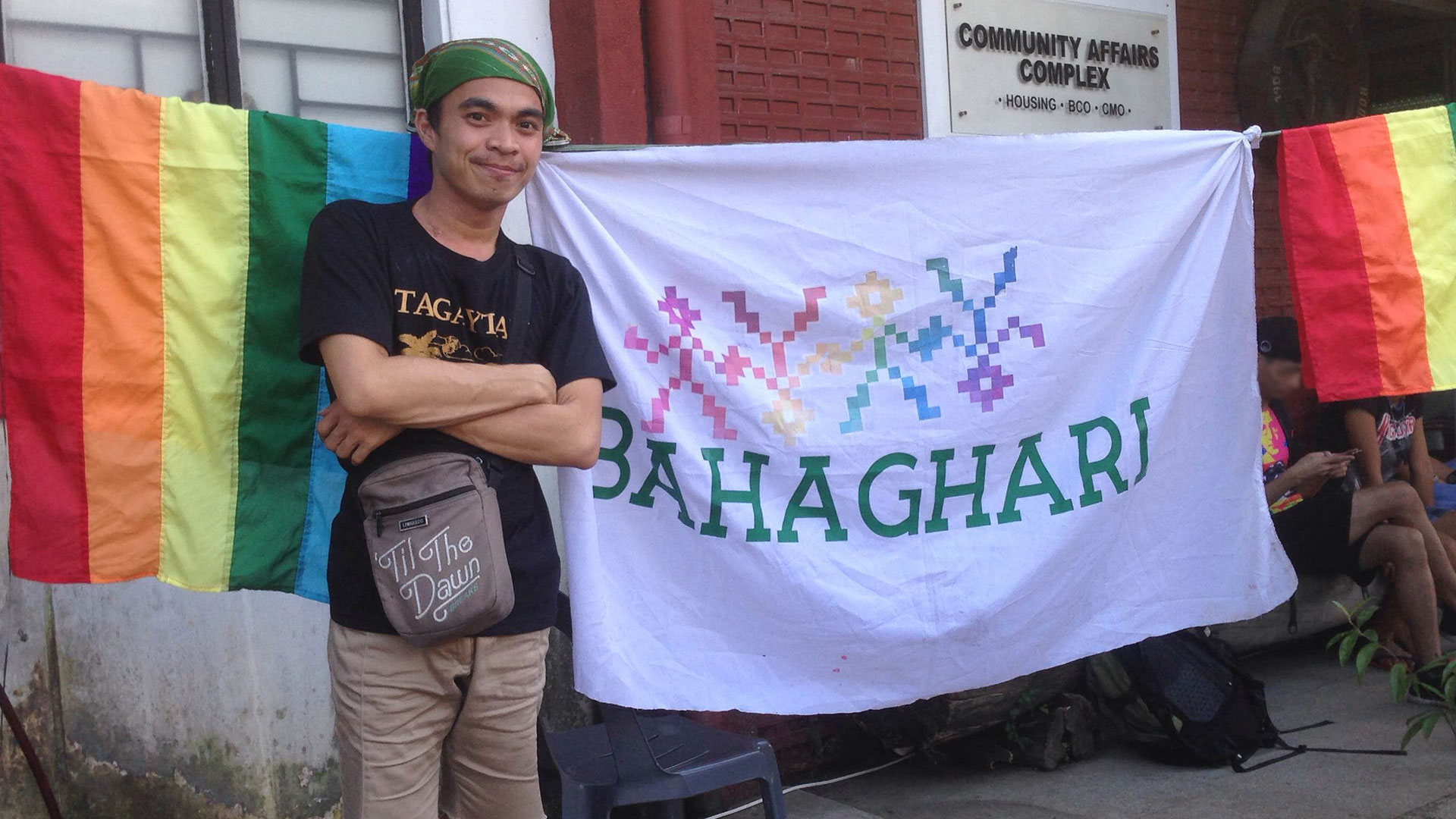
- Details
Being Moro and LGBT
The life of a gay Moro is difficult. The eyes of our family and society are all on us. And the eyes of Islam, the religion of our upbringing, judge us heavily. In their interpretation of Islam, we are "haram": our feelings are dirty and forbidden. Gay Moros and their inner selves have no place in the "ummah", the community of Muslims, because in this society, there are only two genders in the eyes of God. And so we are forced to pretend and hide from their cruel eyes.
The challenge is great: how do we fight the eyes of Islam, the eyes of God? How do we show our struggles? How do we face them so that they better understand our plight?
In our experience, the value of of faith in our activism cannot be ignored. We must face the eyes of God: in order for society to understand our hardship, they must understand the influence religion has on culture -- and of course, the influence culture has on religion. The LGBT sector suffer all manner of discrimination, and a great portion of this comes from the way people read and understand their religion. Because the problem is not all of Islam. We all know that many Muslims love their fellow LGBT, and that their defence of our rights is based on their faith: to them, the eyes of God are the eyes of justice and love. The problem lies in the confusion of what is truly the word of our faith and what is merely the whims of culture and history -- confusing the word of human beings for the word of God. Because is it true that gay Moro like us have no place in the "ummah"? Is this what God sees, or what human beings see?
We believe that the struggle of the LGBT against their suffering in the hands of a cruel society is not only based on the question of human rights, but is also based on our faith as Muslims. In the Quran, it is written: "Let there arise out of you a band of people inviting to all that is good, enjoining what is right, and forbidding what is evil: They are the ones to attain victory" (Sura 3, 104). Those who hurt us always look at the word "evil", but we turn to the word "good": our struggle for the rights of gay Moros is also a struggle for a true faith which embodies love for every person. And we believe that a time will come that we will be accepted and loved fully, and that true love and justice may be victorious for all.
Buhay Moro at LGBT
Mahirap ang buhay ng isang baklang Moro. Lahat ng mata, ng pamilya at ng lipunan, ay nakatutok sa amin. At ang mata ng Islam, ang relihiyong kinalakihan namin, ay mabigat manghusga. Sa kanilang interpretasyon ng Islam, kami ay "haram": na ang aming damdamin ay marumi at pinagbabawalan. Walang lugar ang mga baklang Moro at ang kanilang kalooban sa "ummah", ang komunidad ng mga Muslim, dahil sa lipunang ito, dalawa lang ang kasarian sa mata ng Diyos. Kaya kami ay napipilitang magbalat-kayo at magtago sa kanilang malulupit na mata.
Matindi ang hamon sa amin: papaano namin lalabanan ang mata ng Islam, ang tinuturing mata ng Diyos? Papaano namin mapapakita ang aming kinakaharap? Papaano namin sila haharapin at mas lubos nilang unawaan ang aming kalagayan?
Sa aming karanasan, ang halaga ng pananampalataya sa aming aktibismo ay hindi pwedeng pabayaan. Kailangan harapin ang mata ng Diyos: upang maunawaan ng ating lipunan ang aming karanasan, kailangan maunawaan rin natin ang impluwensiya ng relihyon sa kultura -- at gayon din, ang impluwensiya ng kultura sa relihyon. Ang sektor ng LGBT ay nakakaranas ng iba't ibang uri ng diskriminasyon, at isang malaking bahagi nito ay nagmumula sa pagbasa at pagwari nila ng kanilang relihiyon. Sapagkat ang problema ay hindi ang buong Islam. Alam nating lahat na maraming mga Muslim ay nagmamahal sa kanilang angkan na LGBT, at ang pagtatanggol nila ng aming karapatan ay nakabatay sa kanilang pananampalataya: sa kanila, ang mata ng Diyos ay mga mata ng hustisya at pag-ibig. Ang problema ay nasa maling pag-aninaw ng kung ano ba ang tunay na salita ng aming pananampalataya at kung ano ba ay likha lamang ng kultura at kasaysayan -- yung pagkalito ng salita ng tao bilang salita ng Diyos. Dahil totoo ba na walang lugar ang mga bakla katulad namin sa "ummah"? Ito ba ay ang tingin ng Diyos, o ng tao?
Naniniwala kami na ang paglaban ng mga LGBT sa kanilang kinakaharap sa mapang-aping lipunan ay hindi lamang nakabase sa usaping karapatang pantao, pero nakabase rin sa aming pananampalataya bilang Muslim. Ayon nga sa Quran: "At maaaring may bumukal galing sa inyong isang bansang nag-aanyaya sa kabutihan, at humihimok sa wastong ugali at nagbabawal sa kalaswaan. Ang ganyan ang silang magtatagumpay" (Sura 3, 104). Nakatitig lagi ang mga nang-aapi sa salitang "kalaswaan", pero kami ay nakatitig sa salitang "kabutihan": ang laban namin para sa karapatan ng mga baklang Moro ay laban rin para sa tunay na pananampalataya na sinasaloob ang pagmamahal para sa bawat tao. At naniniwala kami na darating ang panahon na sila ay tanggapin at mahalin ng buong-buo, na ang tunay na pag-ibig at hustisya ay magtatagumpay para sa lahat.
---June “Zion” Dalanda is the Vice-Chairperson for Mindanao of Bahaghari, a national organization for LGBT activists in the Philippines.
